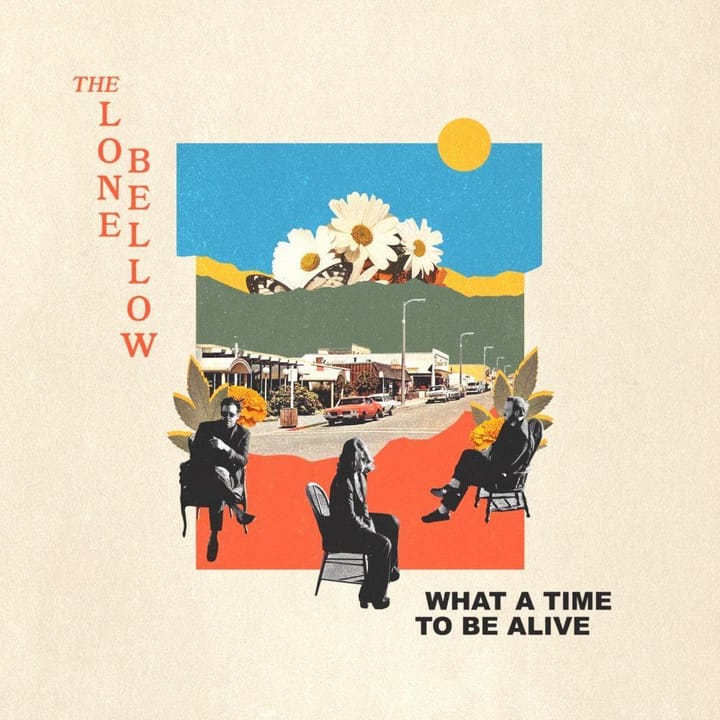As is characteristic of much that Steve Earle has ever created, and much that's American, his new album Jerusalem begins with images of inescapable destruction and death ("Every tower ever built tumbles"), and ends, nevertheless, with an optimistic vision of peace where there has been no peace.
The texture of the trip that takes us from the strong, whispered dirge of an opener, "Ashes To Ashes", to the equally strong final, title track, sparked as it is by exuberant, hopeful harmonica, is what finally matters about this much-anticipated release -- and not the seemingly artificial controversy around it.
Jerusalem is already being tagged as Earle's "political" record, largely because of ill-informed attacks that greeted the song "John Walker's Blues" a good two months before the album's release. Yet despite its title, only a handful of the eleven songs on Jerusalem touch on foreign policy, or could even be called "political" at all. And most of the cuts likely to be remembered and played repeatedly are not among them.
"I Remember You", for instance, is a tuneful country-rock ballad, one of Steve's patented "missing you" songs, performed as a duet with Emmylou Harris. "Go Amanda" is an outright rocker about a girl you couldn't stop from leaving if you tried; it's one of several songs that show some newfound influence of the Rolling Stones circa 1967-71. And the catchy, if fairly familiar, "Shadowland", an early-Earle-style midtempo roots-rock anthem of taking off for the darkness on the edge of town, has few obvious topical, let alone political, implications.
Not incidentally, Earle tries out some new colors for his pallet -- from those Stones blasts, to the Tom Waits-like old-timey-banjo-meets-foghorn combo on the pointed prison portrait "The Truth", to several less successful stabs at near-hip-hop beats, songs which are which are not consistently crisp -- more meaty than beaty.
Experience shows Earle is unlikely to go wrong with a detailed story of a life, in context, with twists -- and points -- you can't forget. There's a terrific example here: "What's A Simple Man To Do?" follows a laid-off Mexican factory worker who embarks on a hopeful trip across the border only to wind up in jail, caught bringing contraband in desperation. With Sir Doug-style Tex-Mex border rhythms working, it's a gem.
Which brings us to the essentially similar-minded "John Walker's Blues", the "American Taliban" song that provoked all the yelling.
Arguably a secret rewrite of "Johnny Come Lately" (where a Vietnam vet goes overseas expecting to follow a World War II soldier's dream and comes home to disappointment), it features engaging and original semi-Arabic rock tones and rhythms. But Earle goes further into this guy's head than he really has reason to be comfortable with. What was Walker Lindh thinking on leaving, and on being caught? Who really knows? He's not really inside this head and life as he has been with his death row portraits, for example.
More importantly, the song's "Whoops, that didn't quite work out!" conclusion is simply eluding a satisfying twist, or an ending at all. This may well be a misplaced carry-over of the Raymond Carveresque "implied but not quite delivered" ending style that Earle picked up in his short-story writing; it's not necessarily the strongest way to go in a song intended to change general perceptions. Perhaps the most provocative part of the actual story is the part left untold -- what the subject felt when he encountered a fellow MTV-raised American on the other side, for instance.
The other politically tinged songs are a mixed bag. "Conspiracy Theory" is a murky anti-lullaby that both questions and salutes paranoid conspiratorial thinking, with some soulful and sweet singing added by Siobhan Maher-Kennedy. "Amerika V. 6.0" provides shout-outs on some class-based topical themes -- lousy health care coverage, ex-radicals turned yuppie, security for country clubs -- but never says much about them.
The album is finally not as "daring" as some of the hype would have it, unless suggesting that peace is still possible and that all people are still people really is daring at this point. Maybe so. But if political songs are intended to provide energy or routes toward action, or remake mass perceptions, it's hard to argue that the relevant numbers here meet those tests.




Comments ()